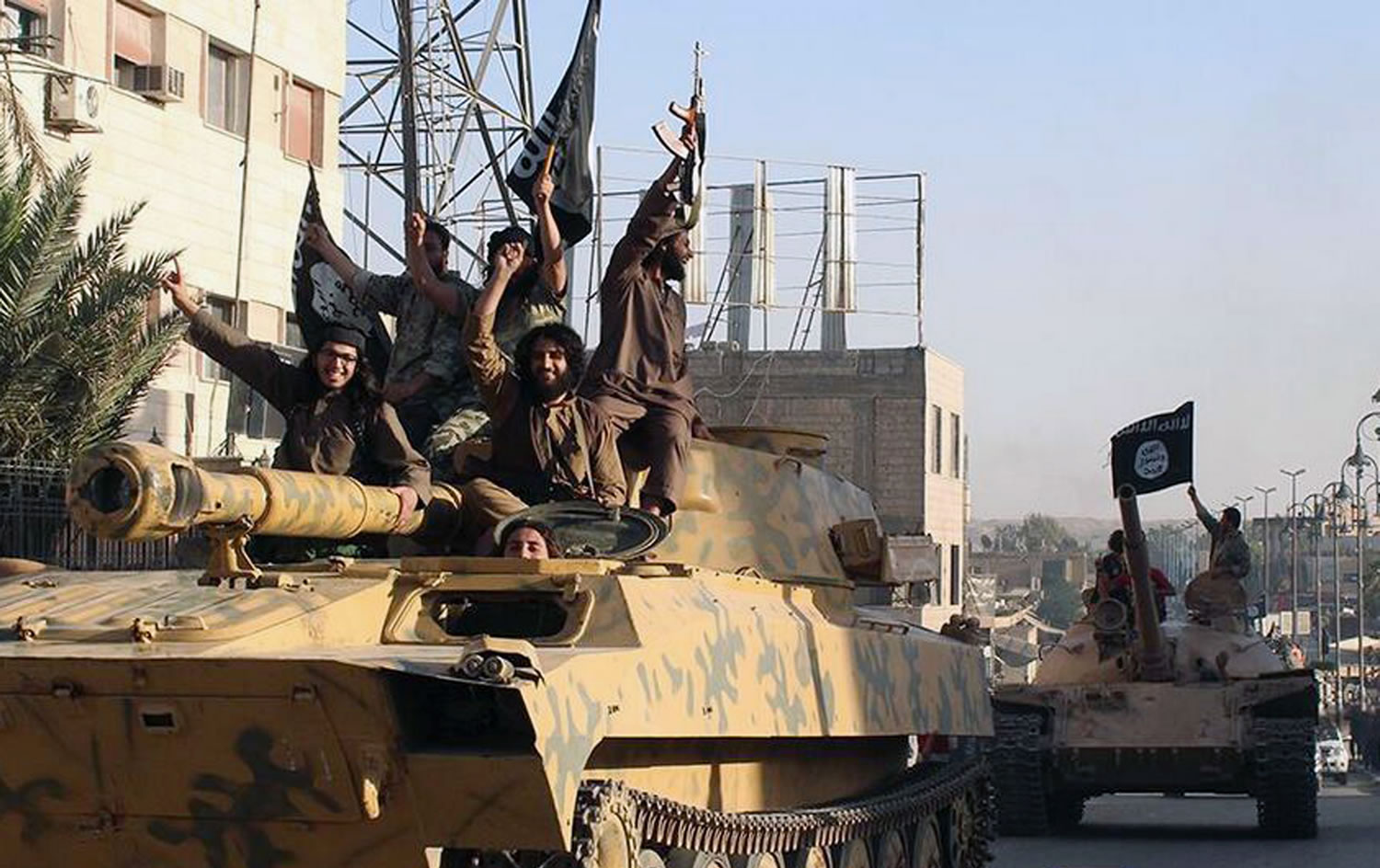WASHINGTON — The intelligence gathered by U.S. military surveillance flights over Syria could support a broad bombing campaign against the Islamic State militant group, but current and former U.S. officials differ on whether air power would significantly degrade what some have called a “terrorist army.”
Further complicating the plans, any military action against Islamic State militants in Syria would also have the effect of putting the U.S. on the same side as Syrian President Bashar Assad, whose ouster the Obama administration has sought for years.
The Islamic State group is headquartered in the Syrian city of Raqqah and has been fighting the Assad government, though it is also at war with moderate rebels who have received arms and funding from the U.S. The group, which controls a large part of eastern Syria, crossed into Iraq earlier this year and has captured much of the Sunni sections of northern and western Iraq, prompting U.S. airstrikes to protect American personnel in that region.
U.S. officials say that surveillance drones and spy planes had begun flying over Syria on the orders of President Barack Obama, who is considering a series of military options against the extremist group that also killed an American, journalist James Foley, and is holding an American woman hostage.
In recent months, the threat from the Islamic State has eclipsed the issue of Assad, who escaped U.S. military action after Obama pulled back planned airstrikes one year ago in order to consult with Congress. The hostage-takings have galvanized a U.S. government that already had been trying to respond to the militant group’s surge with airstrikes that seem to have the public’s approval.
The U.S. military has been bombing the Islamic State group’s positions for weeks, helping break its hold on a dam near the city of Mosul. U.S. attacks destroyed two more militant vehicles Tuesday near the Kurdish city of Irbil, bringing to 98 the total number of U.S. airstrikes in Iraq since Aug. 8.
The decision to expand surveillance flights into Syria will boost intelligence gathering there, because the flights provide far better imagery and other data than do spy satellites in space orbit. Drones, for example, can hover over targets for hours, and both drones and spy planes can carry equipment that intercepts ground communications.
The U.S. is not cooperating or sharing intelligence with the Assad government, Pentagon and State Department spokesmen said. But the U.S. flights are occurring in eastern Syria, away from most of Syria’s air defenses. And experts expressed doubt that Syria would attempt to shoot down American aircraft that are paving the way for a possible bombing campaign against Assad’s enemies.
As Obama contemplates options, military officials are sorting through what kind of campaign it would take to defeat or contain the Islamic State group. Obama has ruled out sending large ground formations.
Targeted drone missile strikes against al-Qaida groups in Yemen and Pakistan had significant impact, American officials say, but only after many months of intensive, on-the-ground intelligence gathering that would be difficult, if not impossible, to replicate in Iraq and Syria.
Yet some air war planners argue that since the Islamic State group acts more like an army — massing in large formations of vehicles and moving over open terrain — a sustained air campaign could smash it.
“You can make a big impact on ISIL by actually using air power as a tool,” said retired Gen. Charles Wald, who commanded the air campaign that drove the Taliban from power after the Sept. 11 attacks, using an alternative acronym for the Islamic State group. “You could kick their butt if you had the right kind of campaign.”



